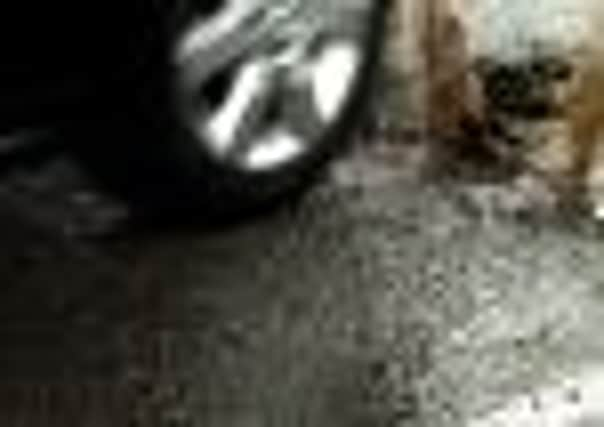Leeds and Sheffield: Councils seeking new powers to clamp down on errant drivers


Councils in Leeds and Sheffield are said to be among local authorities in discussions with the Department of Transport about being granted new powers to fine drivers who make illegal turns or encroach on yellow boxes.
The other councils include Liverpool, Manchester, Newcastle, Nottingham, Plymouth, Reading, Salford, and Southampton.
Advertisement
Hide AdAdvertisement
Hide AdMotoring organisations fear that it could lead to motorists being penalised for making simple mistakes when confronted with badly designed junctions – which councils will not be in a hurry to redesign.
Drivers’ groups said councils could end up using their new powers as a way of raising more cash.
Local authorities in London used their extended powers to fine 800,000 drivers last year, raising millions in extra revenue.
The AA said the proposals could “alienate” drivers who made a “simple mistake”. A spokesman suggested that it could lead to councils failing to sort out problems caused by poorly designed roads, particularly where drivers were making mistakes and being caught and fined.
Advertisement
Hide AdAdvertisement
Hide AdThe Local Government Association is lobbying for powers to fine motorists to be extended to councils outside London.
Wakefield Council leader Peter Box, who is the chairman of the LGA’s economy and transport board, was reported as saying: “Very little is currently done to stop the minority of inconsiderate drivers who block cycle lanes and bus lanes, pull up in cycle boxes at traffic lights and clog box junctions causing long tailbacks in rush hour.
“Not only do these needless infringements cause frustration to responsible motorists, they can also put cyclists at risk by forcing them into busy traffic.
“Granting councils the power to tackle impatient drivers who break the law and put others at risk in an effort to shave seconds off their journey would unquestionably help ease congestion, reduce pollution and make roads safer for everyone.”
Advertisement
Hide AdAdvertisement
Hide AdThe Department for Transport is looking at whether the powers should be extended outside London.
It has been reported that councils outside the capital who are seeking the new powers have already been approached by companies operating number plate recognition cameras.
In Leeds there has been an ongoing crackdown against drivers who enter bus lanes. Thousands have been warned and fined.
Earlier this year Leeds Council said it was extending its CCTC camera enforcement of bus lanes after a pilot scheme caught out thousands of car and van drivers illegally using the lanes.
Advertisement
Hide AdAdvertisement
Hide AdThe pilot crackdown in the city centre led to almost 6,000 drivers being fined in just one month.
Drivers who got caught out by CCTV faced fines of £60, or £30 if paid within 14 days.
It was estimated that the council had taken over £300,000 in fines from the pilot scheme alone.
The city council said at the time that setting up more CCTV cameras would be “self financing”, would reduce congestion and maintain free flowing traffic in the bus lanes.
Advertisement
Hide AdAdvertisement
Hide AdThe authority said it expected to make around £1m a year from extending the bus lane crackdown.
When bus lane cameras were introduced in Glasgow they raised £1m in less than three months, it was reported in July.
More than 39,000 penalties were issued, equivalent to more than 500 a day.
Critics of the scheme said that many of those caught out were law-abiding motorists who had simply misread the signs and made a mistake.
Advertisement
Hide AdAdvertisement
Hide AdA similar scheme in Edinburgh was suspended just weeks after its launch when the local authority received complaints about its operation from irate motorists.
In February this year Sheffield Council discussed plans to spend £30,000 on a mobile system for enforcing bus lane laws which was expected to bring in £80,000 a year in fines.